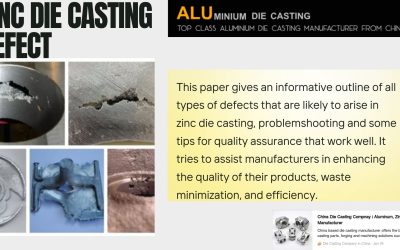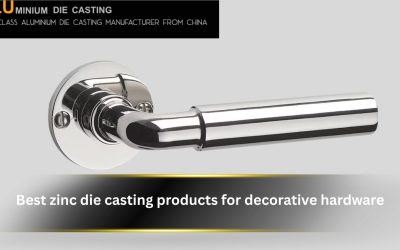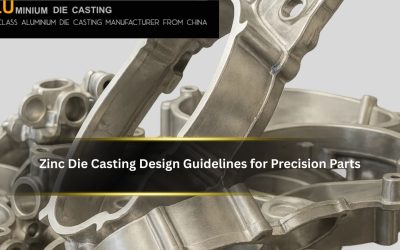How does the die casting process work?
Die casting is frequently referred to as the fastest route between raw material and finished product.
Because of the differences in the melting temperatures of various die casting alloys, two methods of inserting the molten metal into the die cavities are used. These are referred to as hot chamber and cold chamber machines.
Hot chamber
Hot chamber or plunger machines are used mainly for zinc die casting alloys. With modern technology, this process is increasingly being used for magnesium. The hot chamber process is a preferred die casting method due to its high rate of productivity. However, it cannot be used for some high melting point alloys or for those alloys which attack the steel working parts of the machine.
Operating sequence for the hot chamber die casting process:
1. Die is closed and gooseneck cylinder is filled with molten metal.
2. Plunger pushes molten metal through gooseneck passage and nozzle and into the die cavity. Metal is held under pressure until it solidifies.
3. Die opens and cores, if any, retract. Casting stays in ejector die. Plunger returns, pulling molten metal back through nozzle and gooseneck.
4. Ejector pins push casting out of ejector die. As plunger uncovers inlet hole, molten metal refills gooseneck cylinder.
Cold chamber
Cold chamber machines minimize contact between the alloy to be cast and steel machine parts which allows the processing of high melting temperature alloys. Its primary use is for aluminum die casting, brass, and larger magnesium die castings.
Operating sequence for the cold chamber die casting process:
1. Die is closed and molten metal is ladled into the cold chamber cylinder.
2. Plunger pushes molten metal into die cavity. the metal is held under high pressure until it solidifies.
3. Die opens and plunger follows to push the solidified slug from the cylinder. Cores, if any, retract.
4. Ejector pins push casting off ejector die and plunger returns to original position.




0 Comments